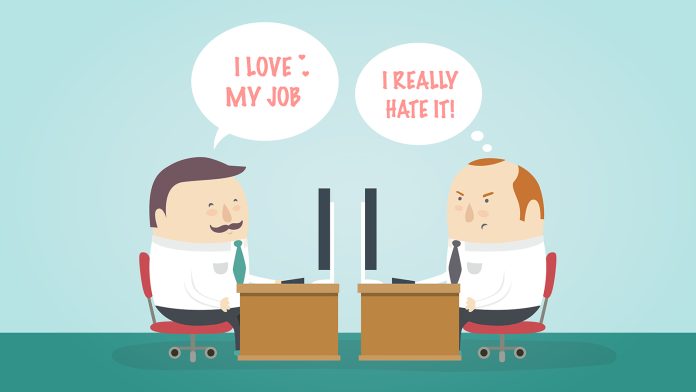How to Deal with a New Job You Don’t Enjoy
Starting a new job can be exciting, but sometimes, reality doesn’t meet expectations. Whether it’s a mismatch in culture, responsibilities, or environment, finding yourself in a role you don’t enjoy can be disheartening. However, how you handle this situation can make all the difference in preserving your professional reputation and redirecting your career. Here are five practical steps to help you navigate a new job that doesn’t feel like the right fit.
1. Take Your Time
Your initial reaction may be to quit immediately, but it’s wise to give yourself time to adjust.
- Acclimate to the Role: Adjusting to a new job often takes weeks or even months. New processes, colleagues, and a different company culture can feel overwhelming at first.
- Evaluate Over Time: If dissatisfaction persists beyond the first month, it’s fair to question whether the role is a good match. Avoid hasty decisions and focus on understanding the situation fully.
Tip: Patience during the adjustment phase might reveal hidden positives about the job that you didn’t notice initially.
2. Identify the Key Issues
Pinpointing the root of your dissatisfaction is essential for finding solutions or planning your next move.
- Write It Down: Create a list of specific aspects that make you unhappy, whether it’s unclear expectations, workload, or team dynamics.
- Consider Common Causes: Reflect on whether the issue stems from leadership, company culture, lack of growth opportunities, or the job itself.
- Gain Clarity: A clear understanding of your frustration can guide your decisions and help you spot red flags in future opportunities.
Tip: Use this insight to prepare better questions for interviews in your next job search.
3. Put Forth Your Best Effort
Even in a less-than-ideal role, maintaining professionalism and a positive attitude is crucial.
- Focus on Positives: Identify aspects of the job that you can tolerate or even enjoy, such as learning opportunities or connections with colleagues.
- Stay Engaged: Performing well despite challenges reflects your character and work ethic, which could help you secure strong references in the future.
- Long-Term Benefits: Recognizing what you dislike now can help you make better career choices later.
Tip: Approach the role as a learning experience to clarify your preferences and career goals.
4. Quietly Begin a New Job Search
If you’ve determined the job isn’t salvageable, it’s time to seek a new opportunity—discreetly.
- Update Your Profile: Refresh your resume and LinkedIn profile to reflect your skills and experiences.
- Network Strategically: Reach out to connections in your industry without openly discussing your dissatisfaction.
- Highlight Growth: Focus on transferable skills you’ve gained, even from your current role, when applying for new positions.
Tip: If your stay is short and you gained little from the role, consider leaving it off your resume to avoid raising questions about your job history.
5. Resign Gracefully, If Necessary
When it’s time to leave, ensure your departure is professional and amicable.
- Provide Notice: Offer two weeks’ notice to allow for a smooth transition.
- Stay Positive: Avoid burning bridges by expressing gratitude for the opportunity, even if it wasn’t ideal.
- Assist in Transition: Volunteering to train your replacement can leave a lasting good impression.
Tip: A respectful exit preserves your professional reputation and keeps doors open for future opportunities.
Conclusion
Navigating a job you don’t enjoy requires patience, introspection, and professionalism. By giving yourself time to adjust, identifying specific issues, staying engaged, and planning your next move strategically, you can turn a challenging situation into a valuable learning experience.
If you decide to leave, do so with grace, and focus on building a career that aligns better with your goals and aspirations. Remember, every experience—good or bad—contributes to your professional growth.
Also Read – Top 10 Jobs That Will Be in Demand in the Next 10 Years

